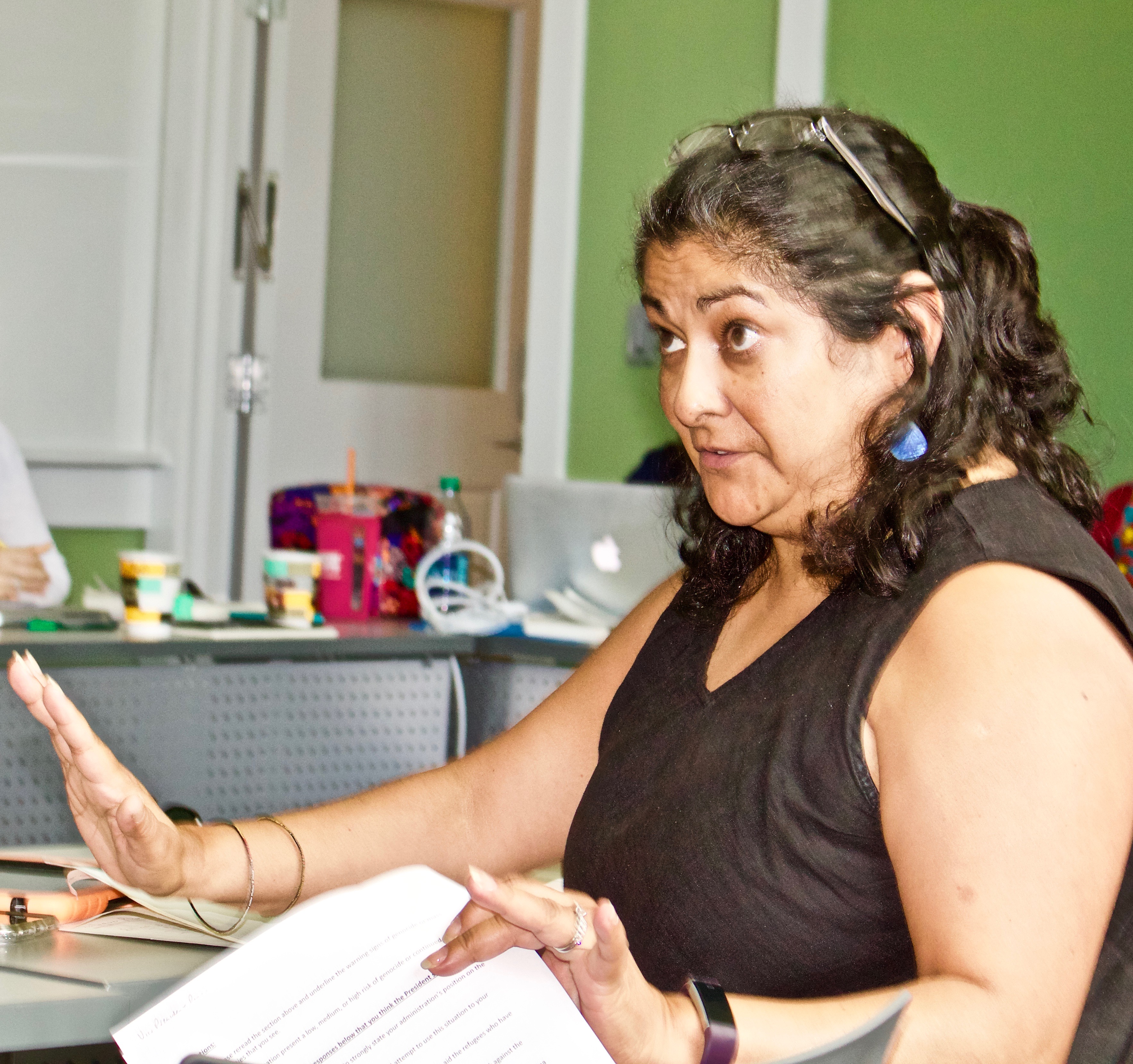Teacher Stephanie Griffin is using the confidence and feeling of empowerment she gained at the TOLI satellite seminar in Amherst, MA to bring real change into the classroom. As a resource guide for special education students, Stephanie has made it a priority to teach inclusion and acceptance as a way to avoid future atrocities.
Stephanie Griffin is no stranger to adversity: growing up Mexican-American in Texas, she never felt that she could freely express all of her ideas. Even after moving to Rhode Island, she is still often the only person of color in the room. Because of these experiences, she has always been passionate about social justice, which led to her interest in Holocaust education and her experience attending the TOLI satellite seminar in Amherst, MA in 2018. At the seminar, Stephanie connected with other teachers who shared her passion for inclusion. In addition to becoming dedicated to written reflections, Stephanie was inspired to create real change in her school and in her community.
“I never felt so empowered,” she says of the experience. “TOLI has really impacted my life and the way I think and the things I want to do in terms of my activism.”
Stephanie works as a resource guide for special education students at Davisville Middle School in North Kingstown, Rhode Island. As the only teacher of color in the building, she knows how it feels to be the one person who’s different. Because of this, Stephanie has made inclusion one of her biggest concerns—she makes sure that her special education students are included in the same classrooms as everyone else, even when she faces push back for it.
“I had to think of ways to make inclusion happen by teaming up with teachers who wanted my kids in their room,” she reflects. “Part of what I worked hard on is the idea of universal design. When you design your lesson you design it for everyone… What really is rigorous and hard to do is to design lessons that include everybody.”
Stephanie dedicates much of her time to actively spread ideas of inclusion and peace in her community. And after 9/11, it became more important than ever. This inspired her to learn more about Holocaust education, and led her to attend the TOLI seminar.
“Under this umbrella of understanding peace education, you have to understand the opposite of peace and that brings us to genocide,” she says, noting that she wants these ideas to be accessible to students of all learning abilities. “I need to make sure I’m the expert on it… I need to bring my own way of seeing things.”
Stephanie feels that in today’s world of fake news, these lessons have become even more imperative.
“As teachers we’re taught to recognize what’s a lie but students haven’t been. So we focus on helping children recognize when the data they’re looking at doesn’t make sense or isn’t sustainable. It’s been eye opening what the kids will come in and tell us what they think. One of the biggest hurts I’ve had in all the years I’ve taught is a student coming up to me and saying: I hope you were born here because I don’t want you to get deported.”
Stephanie is also passionate about making those with varying religious backgrounds feel included. She says she’s not afraid to frankly address atrocities like the events in Pittsburgh and New Zealand with her students.
“People don’t feel like religion can be talked about in a secular setting,” she says. “[But] when children feel accepted for who they are and what their identities mean then you’re going to build that richness into your communities… Maybe those people who committed those atrocities never had someone tell them that. Whose failure is it that those people did what they did? I think ultimately it’s our culture.”
These days, Stephanie is actively working with the teachers in her school to create social change.
“I never have felt more involved politically than… when teachers got together about an idea and were able to effect change in our laws and the policies of our government,” she says of the work she continues to do. “And TOLI did a lot to boost my confidence as a leader.”
To learn more about Stephanie’s work please visit her website: https://sites.google.com/nksd.net/griffin2018/teachers-as-activists
And to view resources Stephanie used in a day of learning she recently co-led, titled: “Teachers as Activists: Combating Anti-Religious Bias,” please go here: https://padlet.com/smakielski2016/qra83kivj29a

